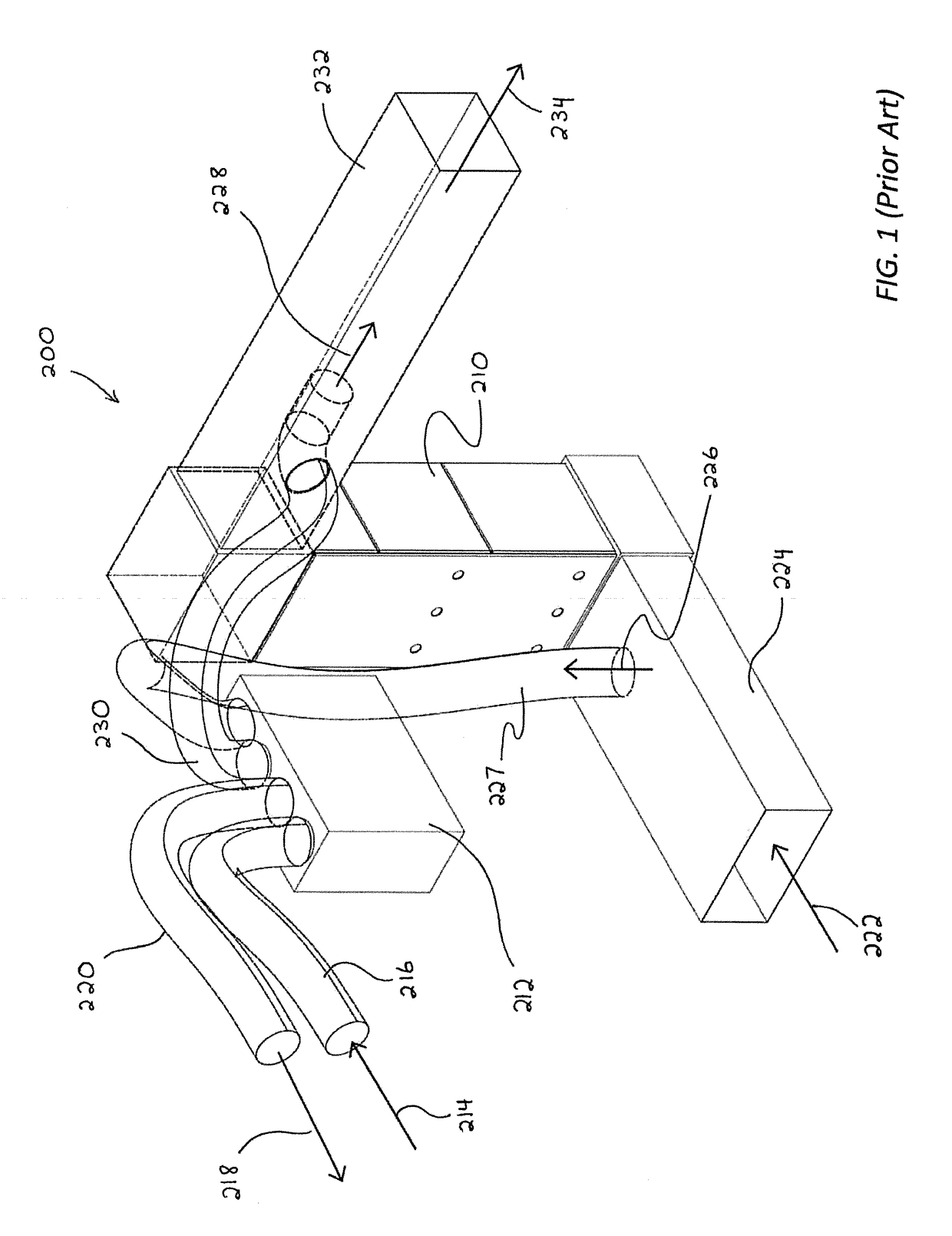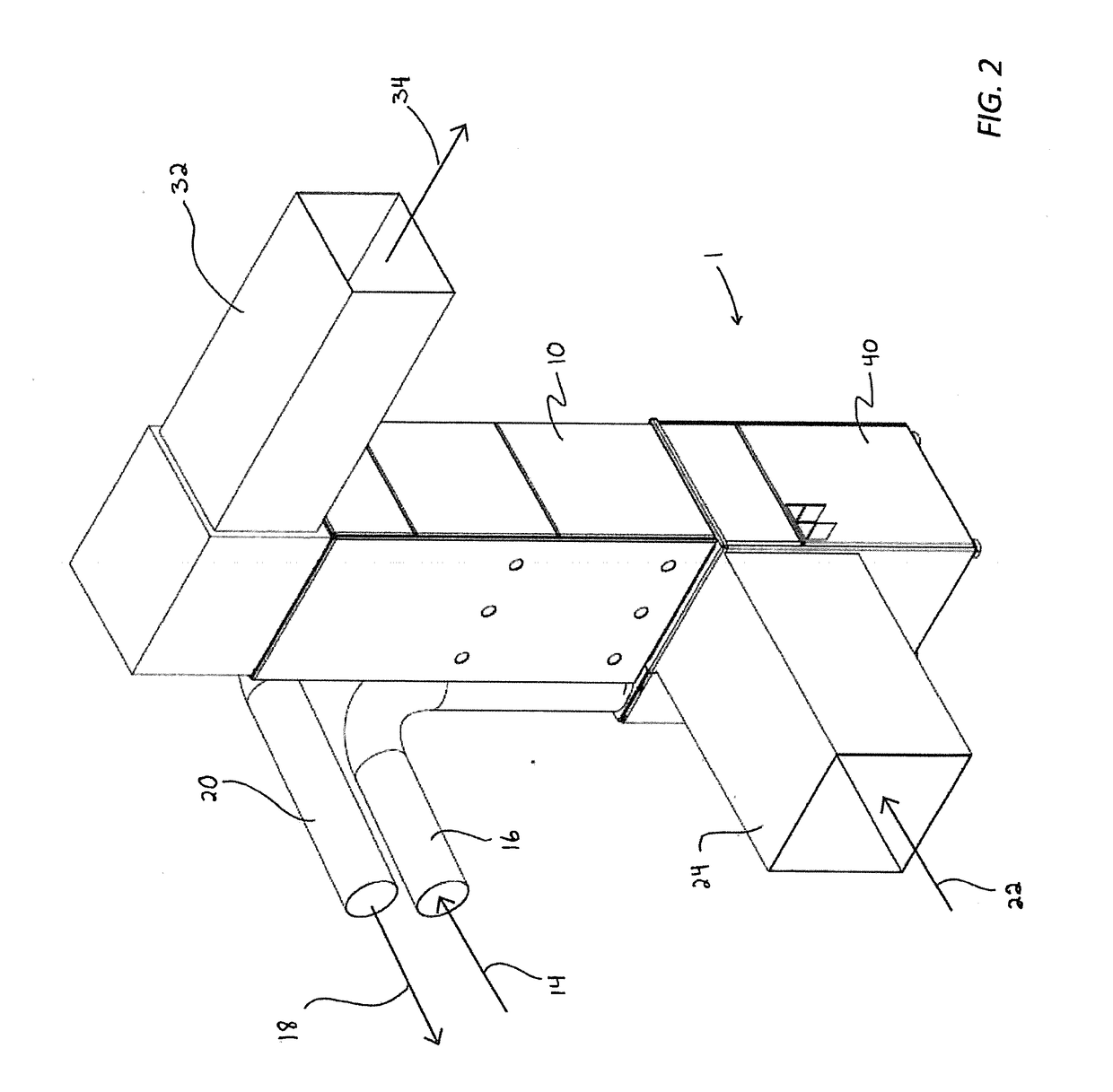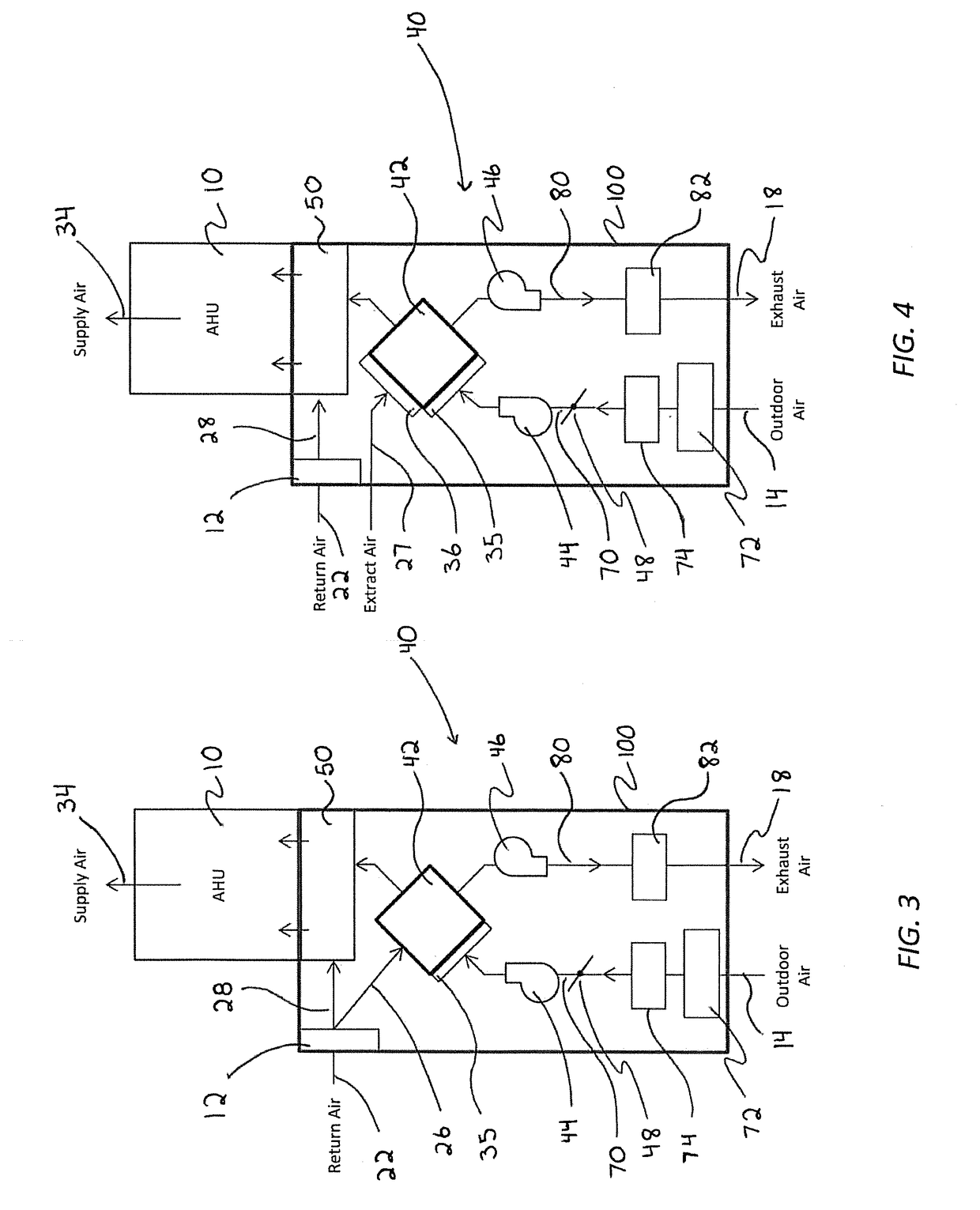Integrated Heat And Energy Recovery Ventilator System
a ventilator system and integrated technology, applied in ventilation systems, lighting and heating apparatus, heating types, etc., can solve the problems of unbalanced air flow, unbalanced, and inconvenient installation of air exchange devices, so as to improve the efficiency of ventilation and heating, and reduce the effect of odor
- Summary
- Abstract
- Description
- Claims
- Application Information
AI Technical Summary
Benefits of technology
Problems solved by technology
Method used
Image
Examples
Embodiment Construction
[0034]“Air handling unit” or “AHU” refers to a device containing a blower and heating and / or cooling elements used to regulate and distribute conditioned air as part of a heating, ventilating, and air-conditioning (HVAC) system.
[0035]“Air-to-air exchanger” or “AAE” refers to any exchanger that transfers sensible heat (temperature) or enthalpy (temperature and moisture) between inflow and outflow air streams. Examples of an AAE include a plate heat exchanger, membrane energy exchanger, enthalpy wheel, or heat pipe system.
[0036]“Heat recovery ventilator” or “HRV” refers to a unit containing an AAE that transfers sensible heat (temperature) between inflow and outflow air streams and which is optionally provided with an associated fan(s) or blower(s), damper(s) and a control system.
[0037]“Energy recovery ventilator” or “ERV” refers to a unit containing an AAE that transfers enthalpy (temperature and moisture) between inflow and outflow air streams and which is optionally provided with a...
PUM
 Login to View More
Login to View More Abstract
Description
Claims
Application Information
 Login to View More
Login to View More - R&D
- Intellectual Property
- Life Sciences
- Materials
- Tech Scout
- Unparalleled Data Quality
- Higher Quality Content
- 60% Fewer Hallucinations
Browse by: Latest US Patents, China's latest patents, Technical Efficacy Thesaurus, Application Domain, Technology Topic, Popular Technical Reports.
© 2025 PatSnap. All rights reserved.Legal|Privacy policy|Modern Slavery Act Transparency Statement|Sitemap|About US| Contact US: help@patsnap.com



